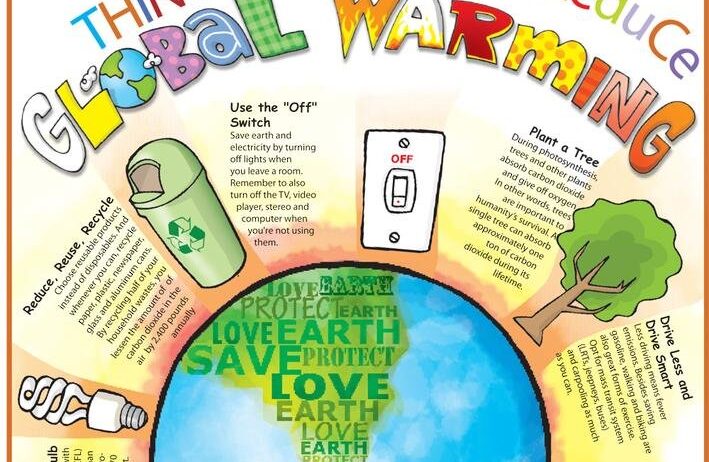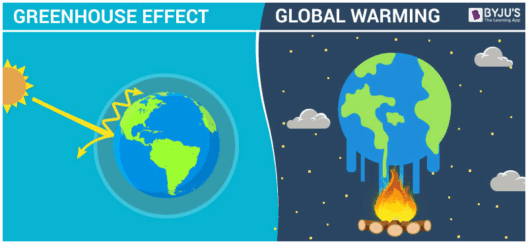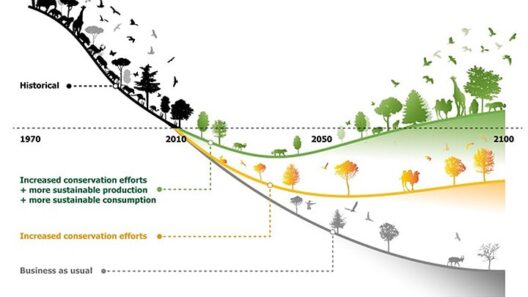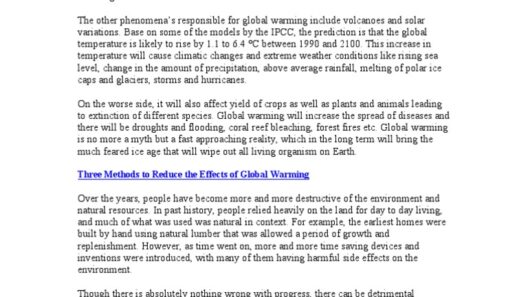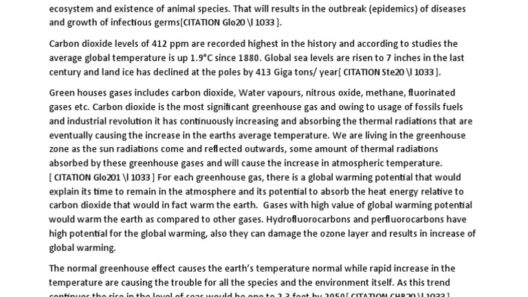Global warming is an existential threat that looms over humanity, accentuating the need for immediate action. The impact of rising temperatures, melting glaciers, and extreme weather events is evident across the globe. As stewards of the Earth, it is our imperative to undertake a myriad of measures to reverse this catastrophic trend. Each action, however small, can culminate in significant change. This article delineates the plethora of ways individuals can contribute to the alleviation of global warming.
Understanding our role in climate change is the first step toward inciting action. It is essential to recognize that every decision made—from the products we consume to the modes of transportation we employ—carries weight. By making conscientious choices, we can instigate a shift that resonates beyond our immediate spheres.
The journey toward mitigating global warming begins at home. By adopting sustainable practices within our domestic environments, we can make a profound impact. Let’s delve into practical measures that can be effortlessly integrated into our daily lives, expanding our awareness and encouraging others to follow suit.
Embracing Energy Efficiency and Renewable Sources
One effective way to combat global warming is to improve energy efficiency. This entails replacing traditional incandescent bulbs with compact fluorescent or LED options, which consume significantly less electricity. Furthermore, investing in energy-efficient appliances can drastically reduce energy consumption, thus lowering carbon emissions.
Beyond household measures, transitioning to renewable energy sources can have far-reaching effects. Home solar panels are becoming increasingly affordable, providing households the ability to harness the sun’s energy. Wind turbines and geothermal systems are additional alternatives that can help diminish reliance on fossil fuels, a major contributor to greenhouse gases.
Advococating for policies that promote renewable energy at local and national levels is equally important. Engaging with local representatives to support legislation favoring clean energy initiatives can spur systemic change, benefiting the environment on a grander scale.
Transforming Transportation Habits
Transportation is another leading source of carbon emissions, necessitating a transformative approach. Opting for public transport, carpooling, or cycling not only reduces individual carbon footprints but also augments community cohesion. Many cities are investing in bicycle lanes and pedestrian-friendly infrastructure, making alternative transportation more accessible.
For those who must drive, considering fuel-efficient or hybrid vehicles can mitigate the impact. Electric cars are gaining traction as viable alternatives and come with the advantage of lower greenhouse gas emissions. By supporting policies that promote electric vehicle infrastructure, we can influence a more sustainable automotive culture.
Another intriguing aspect is the integration of telecommuting. The normalization of remote work arrangements in recent years showcases how reducing daily commutes can contribute to carbon footprint reduction. Businesses can also play a role by implementing flexible work policies that prioritize sustainability.
Revitalizing the Power of Plant-Based Diets
The food choices we make significantly impact climate change. Livestock farming is a leading contributor to greenhouse gases, making it imperative to reconsider our dietary habits. Adopting plant-based diets minimizes not only individual carbon footprints but also encourages global shifts in agricultural practices.
Incorporating more plant-based meals into everyday diets does not necessitate complete abstention from animal products. “Meatless Mondays” or “plant-forward” dining are excellent ways to reduce meat consumption while still enjoying a diverse array of flavors. Communities can also support local farmers’ markets and community-supported agriculture programs, promoting sustainable food production.
Furthermore, understanding the significance of food waste is crucial. Composting organic waste not only enriches soil but also minimizes methane emissions produced by decomposing waste in landfills. Becoming more mindful of our consumption patterns fosters a culture of sustainability.
Fostering Awareness and Education
Knowledge is power. Disseminating information about global warming and environmental sustainability is paramount in cultivating an informed populace. Schools and community organizations can host workshops, seminars, and panel discussions that inspire individuals to embrace eco-friendly living.
Social media platforms serve as powerful tools for raising awareness. Sharing informative content, calling attention to environmental issues, and engaging with communities online can amplify messages of sustainability. Grassroots movements often begin with just one person speaking up, demonstrating the power of collective action.
Taking Initiatives in Local Communities
Mobilizing at the community level can create momentum that drives systemic change. Participating in local clean-up efforts or reforestation projects promotes a sense of accountability and connection to the environment. Community gardens and green spaces can combat urban heat islands, particularly in areas heavily impacted by industrialization.
Moreover, lobbying local governments for stricter environmental regulations and sustainable urban planning is fundamental. Promoting green spaces, biodiversity restoration, and smart growth strategies ensures that even as populations expand, they do so harmoniously with nature.
Conclusion: The Collective Responsibility to Initiate Change
Combating global warming is a monumental challenge, yet it is one that can be met with persistent effort and collective action. Every individual possesses the potential to create ripples of change, ultimately culminating in a tidal wave of progress. By adopting sustainable practices, advocating for progressive policies, and educating ourselves and others, we can contribute to a healthier planet for future generations.
The road ahead may be daunting, but the power of informed choice and united action can reshape the environmental narrative. In doing so, we not only combat global warming but invigorate communities, foster biodiversity, and secure a sustainable future that awaits us all.


